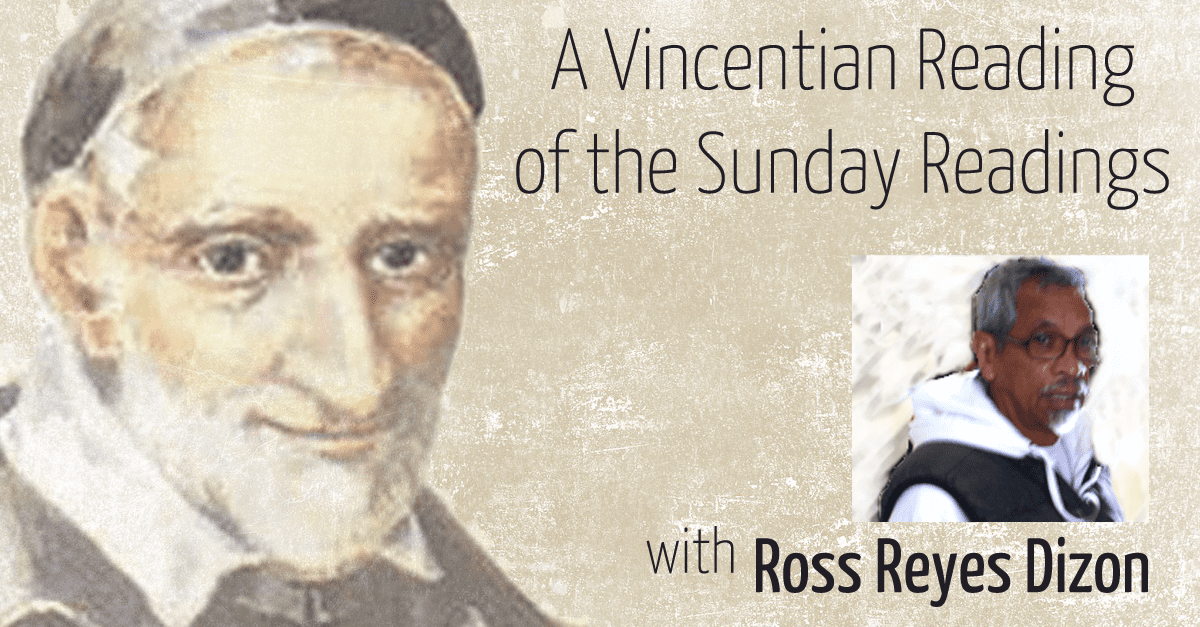Jesus gives spiritual gifts to us who gather in his name. He expects us to keep the wholeness and unity of the Spirit through the bond of peace.
Right after Adam and Eve have given in to the serpent’s temptation, their personal wholeness starts to erode. For they no longer feel as before, comfortable in their own skin. Seeing now their nakedness and feeling ashamed, they make loincloths with fig leaves.
And Adam’s answer, as God tells him to his face that he has disobeyed, shows that sin also leads to separation of people. The man, yes, blames the woman. What he says is surely a far cry from what he exclaimed earlier, “This one, at last, is bone of my bones, and flesh of my flesh!” There is, then, a denial of the wholeness of the couple made one flesh.
Jesus wants us to preserve wholeness; we are all one in him.
Giving his body up and shedding his blood, Jesus has broken the wall that separates us from one another. He who is our peace wants us to get back the wholeness that he has wished for us from the beginning. We are all one in him. So, there is neither Jew nor Greek, neither slave nor free person, there is not male and female.
This means, among other things, we need not see enemies everywhere. After all, those who are not against us are for us. Even complainers and malcontents can become, by God’s grace, our partners (SV.EN II:425).
No, we cannot do without wholeness, which entails partnership with others. Because it is hard for us adults to accept this, Jesus rightly urges us to become like children.
Children effectively admit their dependence on others. We adults, on the other hand, tend to fool ourselves believing we can do it all by ourselves. We easily forget that God does not save human beings merely as individuals, without bond or link between one another. Rather, he brings them together as one people (LG 9).
And we cannot put selfish search for recognition—for ourselves or our group—ahead of the proclamation of the Gospel. Not ahead either of the protection of the helpless. In fact, announcing the Good News to the poor does not only mean that we help them in every way. It means, moreover, that we see to it that others help them likewise (SV.EN XII:77). Obviously, we cannot, by ourselves alone, protect the helpless and prevent scandals and deceits.
Bringing Good Tidings to the poor and the helpless also demands sacrifices. Ironically, one must be ready to suffer dismemberment to become an instrument of wholeness.
Lord Jesus, you send the Holy Spirt to bring together those whom sin has driven apart. Help us to be, in the world, the leaven of wholeness, unity and peace.
30 September 2018
26th Sunday in O.T. (B)
Num 11, 25-29; Jas 5, 1-6; Mk 9, 38-43. 45. 47-48






0 Comments